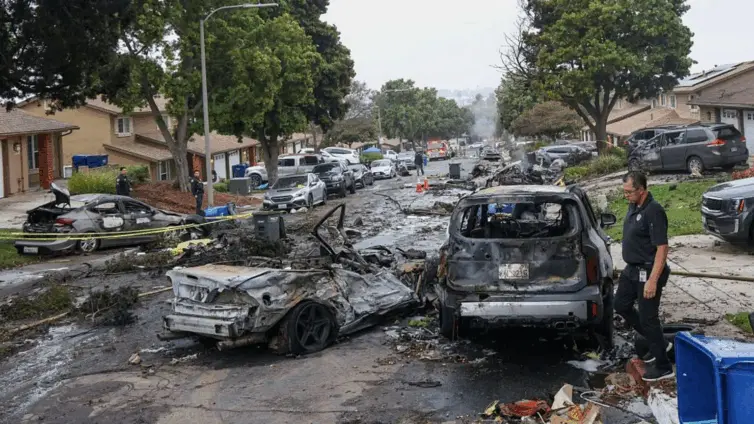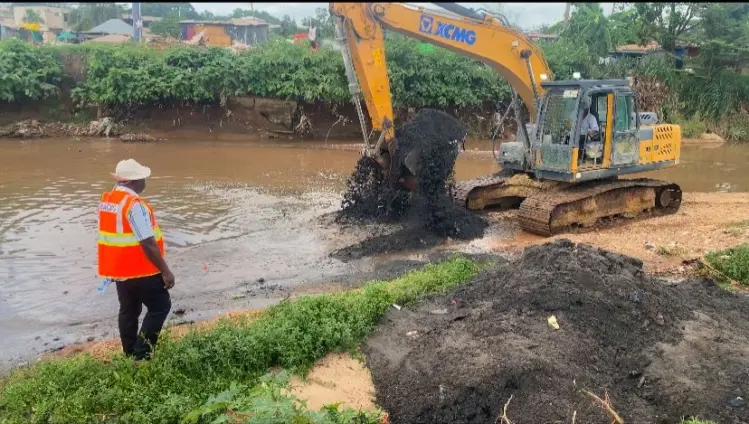The floodwaters surged through Accra, Kumasi, and other urban centers just weeks ago, leaving a trail of displacement and, tragically, loss of life. The May 18 floods served as a stark reminder of the power of nature and the vulnerability of communities. Now, even before the true peak of the rainy season, authorities are raising alarms.
The Ghana Meteorological Agency (GMet) has issued an advisory, with senior forecaster Felicity Ahafianyo specifically warning of intensified rainfall and the potential for, yes, flash floods Ghana. This isn’t a distant threat; it’s an imminent concern. Speaking on Joy FM’s Top Story, Ahafianyo emphasized the urgency of the situation, making it clear that preparation is paramount.
As residents brace for the coming weeks, understanding the weather patterns and heeding expert advice are crucial for mitigating the risks associated with heavy rains Ghana.
Understanding the Impending Heavy Rains
“We are getting to the peak of the rainy season — we are yet to enter into it,” Felicity Ahafianyo cautioned, highlighting the potential for even more severe weather in the coming weeks. GMet is predicting more frequent and heavier downpours, starting from the end of May and extending into June. The primary concern stemming from these deluges is the increased risk of flash floods in vulnerable areas.

Ghana experiences seasonal rainfall patterns, with the peak rainy season typically occurring during this period. Factors such as climate change and evolving weather patterns can also contribute to the intensity and frequency of rainfall events, exacerbating the risk of flooding.
How to Prepare for Flash Floods
GMet’s advice is clear: preparedness is key. The agency is urging residents in flood-prone areas to take immediate action to protect themselves and their property. “If you are around flood-prone areas, we need to relocate and listen to the officers that have been assigned to us,” Ahafianyo stated, emphasizing the importance of heeding the guidance of emergency and disaster management personnel.
Relocation, while disruptive, can be a life-saving measure when flash floods threaten. Always follow instructions from authorized officers during emergencies.
Practical Steps to Take
Before, during, and after a flood, specific actions can significantly reduce the impact on individuals and communities:
- Before: Secure your home by reinforcing doors and windows. Elevate valuable items to protect them from water damage. Prepare an emergency kit containing essential supplies such as water, non-perishable food, medication, and a first-aid kit.
- During: Avoid walking or driving through floodwaters, as even shallow water can be deceptively dangerous. Seek higher ground immediately if flooding occurs. Stay informed by monitoring GMet updates and reliable news sources for the latest information.
- After: Check your home for structural damage and report any hazards to the appropriate authorities. Avoid contact with contaminated water, which can pose health risks. Follow safety guidelines provided by emergency responders.
The Role of Community Involvement in Flood Prevention
Addressing the threat of flash floods Ghana requires a collective effort. Individual preparedness is essential, but community involvement plays a crucial role in mitigating flood risks and protecting vulnerable populations.
“If our gutters are choked, let us try as much as possible to do communal labour to desilt the gutters,” Felicity Ahafianyo urged. Blocked drainage systems are a major contributor to flooding, as they impede the flow of rainwater and exacerbate the impact of heavy downpours. Communal labor and regular clean-up exercises are vital for maintaining clear drainage systems and reducing flood risks.
Furthermore, staying informed and sharing information within the community is crucial. “And let us also keep ourselves tuned to GMet’s social media handles for weather updates,” Ahafianyo emphasized. Timely access to weather forecasts and advisories allows residents to prepare for potential floods and take appropriate action. Sharing this information with neighbors and community members ensures that everyone is aware of the risks and can take steps to protect themselves.
In conclusion, the advisory from Felicity Ahafianyo and the Ghana Meteorological Agency serves as a critical reminder of the importance of preparing for potential flash floods Ghana. Proactive measures, community involvement, and staying informed are essential for mitigating the risks associated with heavy rains Ghana and protecting lives and property. Take immediate steps to prepare and share this information with others in your community.
Image Source: MYJOYONLINE





















